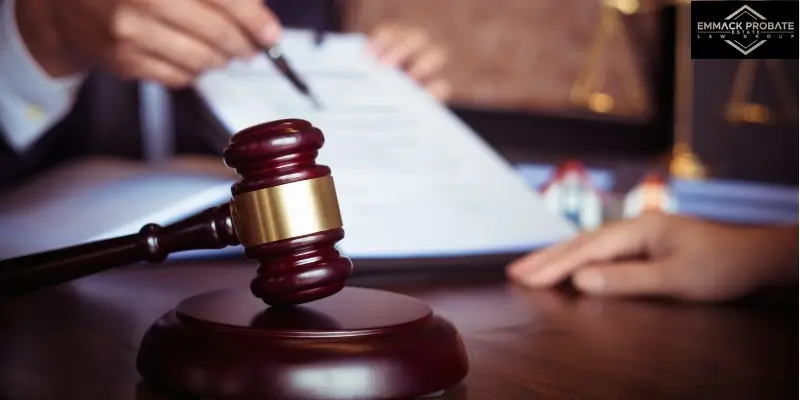Nashville Will Contests Lawyer
Nashville Will Contests Attorney
Winning a will contest case in Nashville means proving that the will is invalid, which depends on the strength of the available evidence. There is a high burden of proof, and judges can be cautious when overruling a will. However, when there is a good reason to believe that a will is not valid, there is a process to contest it. If you’re considering disputing a will in Nashville, a skilled Nashville will contests lawyer like Shanone Emmack can represent you. Contact Emmack Probate and Estate Law Group today to schedule a free consultation.
When a loved one dies, it can be a source of stress and conflict within many families. Even when there’s a comprehensive estate plan in place, 58% of Americans have dealt with disputes over a loved one’s assets. Over 52% of adults do not know where their parents’ important documents are stored, and more than half of will executors do not know about their role in the will. Considering those facts, it’s unsurprising that many wills are contested.
An experienced wills lawyer can help families navigate these challenges, ensuring that the estate is properly managed and reducing the likelihood of disputes.

How to Contest a Will
To contest a will in Nashville, there is a specific legal procedure to follow. The first step is to determine if someone has a legal standing to contest the will, which can provide legal grounds for the dispute. If so, the individual has to file a petition with the Davidson County Probate Court, gather evidence, negotiate with the other parties and, in some cases, go to trial. In most cases, working with an experienced probate and estate lawyer is recommended, as contesting a will can be challenging.
Legal Standing and Grounds
To be eligible to contest a will, an individual must have a legal interest in the will. This means they are either a beneficiary or someone who has a good reason to believe they should be a beneficiary, such as a spouse or child. In some cases, this could be parents, siblings, other relatives, friends, or even charitable organizations.
Then the individual has to determine the grounds for the dispute. A person can’t contest a will simply because they don’t like the contents. Tennessee recognizes the following reasons as legal grounds to challenge a will:
- Lack of testamentary capacity. This means a person did not have the mental capacity to fully understand either the actions they were taking in writing a will or the consequences of their actions. This is generally because of dementia, mental illness, or a physical condition that negatively impacts cognitive functionality.
- Undue influence. This means someone like a caregiver, family member, friend, or other party manipulated the person into making or changing their will.
- Fraud. This means someone created a fraudulent will through forgery or other means, so the will does not actually reflect the wishes of the deceased.
- Improper execution. In other words, the will doesn’t meet the legal criteria to be valid, which is generally that it was signed by the testator and two witnesses who would not benefit from the will.
- Revocation. This means the creator revoked this will and may have made a more recent version.
The Process of Contesting a Will in Nashville
Contesting a will is similar to many other legal procedures. A person has to file a petition, present evidence, and try to reach an agreement with the other parties involved. If the parties can’t come to an agreement on their own, a probate court judge will make a final determination in the case.
You should avoid probate whenever possible, as it can lead to lengthy disputes and legal complexities. Prompt action is essential. In Tennessee, there is a two-year statute of limitations on contesting a will. In rare cases, such as fraud, the timeline may be extended. Nevertheless, in most cases, missing the deadline means giving up the right to contest.
Once the petition is filed, the challenger must collect evidence to prove their claim. This could include witness statements, financial documents, medical records, or other forms of documentation. The burden of proof is on the person contesting the will, as Nashville, Tennessee considers a will valid unless there is evidence otherwise.
FAQs
What Is the Average Cost of Contesting a Will?
The cost of contesting a will can vary significantly, depending on how complex the case is, how many parties are involved, how open they are to negotiating, and the total value of the estate. Typically, a case that goes to trial is often more expensive than one that can be settled out of court. There are also likely to be various court fees, which may also vary from one case to another.
What Are the Most Common Grounds for Contesting a Will?
The most common grounds for contesting a will are lack of testamentary capacity, undue influence, and fraud. These generally have to do with a person intentionally manipulating a situation for personal benefit, such as putting pressure on the testator. Others might abuse their position to create a will when the testator was not in a mental state to make informed decisions for themselves regarding their estate.
What Is the Ideal Way to Contest a Will?
The ideal way to contest a will involves first consulting an attorney before you take any action. Your lawyer can prevent mistakes and delays while significantly increasing your chance of a successful outcome in your case. They can also act as a buffer between you and other parties during what is often a stressful situation, especially given that contested wills can often strain personal relationships.
What Happens If a Will Is Not Followed After One’s Death?
If a will is not followed after one’s death, the executor of the will may face legal repercussions. A will is a legal document, so the executor has a legal duty to follow the wishes of the deceased as they are outlined in the will. If they fail to do so, the beneficiaries can generally take legal action, such as filing a claim for breach of fiduciary duty. If found liable, the executor may have to pay damages to the beneficiaries. In some cases, they may even face criminal charges.
Contact Our Lawyer to Discuss Your Will Contest Case Today!
Will contests can be long, stressful processes, but the skilled and compassionate legal team at Emmack Probate and Estate Law Group can alleviate the burden. Reach out today to schedule a will contest consultation and discuss your case.


